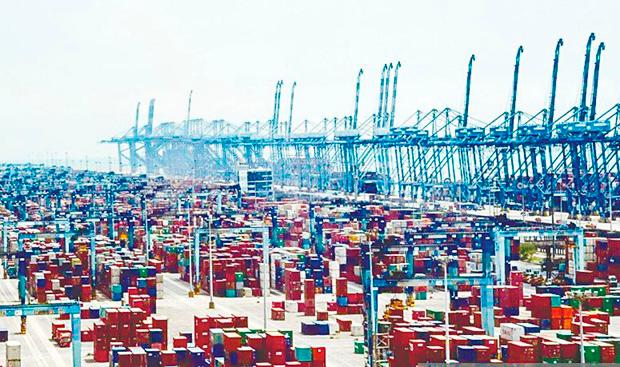PETALING JAYA: Asean is poised to play a greater role in global trade amid rising interest from global corporates, with Malaysia emerging as the region’s star performer as more than three in 10 of companies surveyed are looking to increase or maintain trade activities with the country, a Standard Chartered report reveals.
The report – titled “Future of Trade: Resilience” – presents findings from 1,200 C-suite and senior leaders at global corporates who were surveyed on their outlook for global trade and their corporate strategies over the next three to five years. It highlights the top destinations that multinational companies are considering for realigning their sourcing, manufacturing and exporting while also providing actionable insights to shape decision making.
The survey reveals that Asean will be a key region for corporates to realign their supply chains with Malaysia ranking second, after India, as the top market of choice for global corporates.
Notably, over half of corporates from Mainland China and the US – Malaysia’s first and third largest trading partners respectively – have expressed interest to trade with and manufacture in the country.
Malaysia is also at the centre of trade corridors within Asean that are expected to see more activity. Respondents from Thailand and Indonesia are exploring opportunities to source more from Malaysia, while the Philippines and Vietnam intend to expand their exports to this market.
Singapore corporates also plan to establish manufacturing facilities in Malaysia, attracted by compelling market advantages such as the Johor-Singapore Special Economic Zone that aims to streamline bilateral trade and investment in sectors that include manufacturing, logistics and technology.
Recent macroeconomic and geopolitical developments are significantly impacting costs, with 80% of respondents in Malaysia estimating a rise in the overall costs of goods by 10% to 19% in the medium term. In response, 78% of Malaysia corporates are looking to increase digitalisation efforts while 70% and 64% plan to realign supply chain geographically and adjust treasury management strategies respectively.
Standard Chartered Malaysia CEO Mak Joon Nien noted: “The report reveals that 76% of corporates in Malaysia see geopolitical conflict as the top issue in shaping the future of trade, followed by trade tariffs (62%) and emerging technologies (58%). These findings paint a complex yet compelling future for trade as corporates navigate around the fact that the same trends that threaten to disrupt operations can also be opportunities in shaping global trade.
“As corporates highlight the importance of banking partners that can connect them with vendors and enable supply chain shifts across borders through their extensive network, Standard Chartered is well positioned to step into that role. Our on-ground presence across 54 markets – including in all 10 Asean markets – coupled with decades of local market expertise allow them to partner clients in their digitalisation efforts and facilitate flows across trade corridors to drive efficiency and capture new opportunities, especially in Asean with Malaysia at the forefront.”









